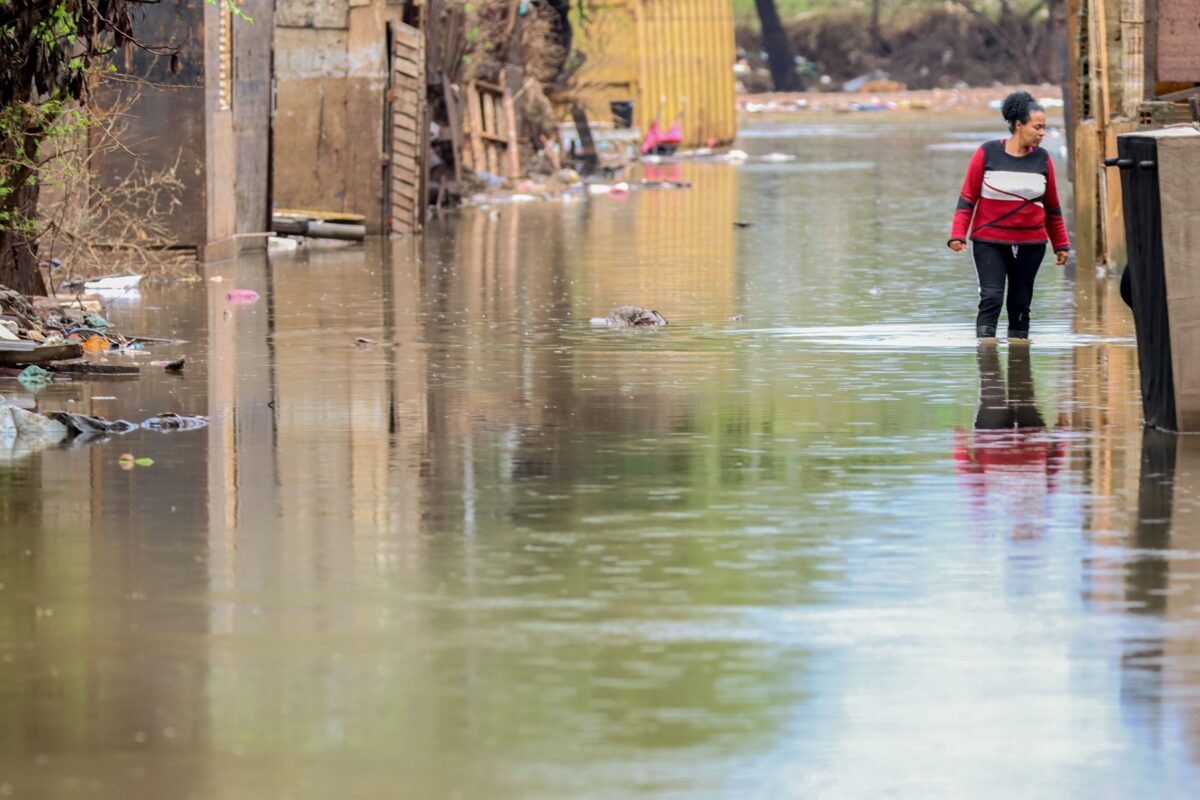 #Careers
#Careers
Parachute science
Initiatives seek to disseminate good research practices to curb injustices in global health studies
 Créditos: Rodrigo Teixeira | Punto Comunicação
Créditos: Rodrigo Teixeira | Punto Comunicação
The issue is old, latent, and hugely troubling in the academic world: the concept of so-called “parachute science”—or, with less subtlety, colonial or parasitic science. “It is an extractive practice whereby researchers—typically from highly resourced countries—perform research and extract data and samples from low-resource regions or populations, without appropriately acknowledging all those involved,” defined Beryne Odeny and Raffaella Bosurgi in a recent editorial for PLOS Medicine (“Time to end parachute science”).
Even when local researchers are listed in the articles, the editorial’s authors point out that it is not uncommon for academic inequalities to be sustained through authorship order hierarchies. Authors from non-central countries are generally placed in middle positions, that is, neither first nor last positions—which are generally reserved for authors responsible for the main contributions to the study.
An analysis published in 2019 in BMJ Global Health revealed that less than 50% of publications about infectious diseases in Africa had an African author in first or last position. All of the published studies reviewed were conducted in Africa and addressed HIV, malaria, tuberculosis, salmonellosis, Ebola, or Buruli ulcer disease.
Beyond mere academic recognition, the issue is a matter of ethics because of its serious implications. “Scientific colonialism has harmed and continues to harm countries in the Global South, which tend to yield their local spaces and populations for research without properly sharing the benefits and contextualizing the results,” indicates Marina Borba, PhD in bioethics and a researcher at the University of São Paulo’s Center for Studies and Research on Health Law (CEPEDISA-USP).
Ethics dumping
At its most perverse, scientific colonialism translates into so-called ethics dumping. “Dumping” is an economics term used to designate an unfair commercial practice by which companies jointly arrange to sell goods or services at prices far below their fair value, in order to beat the competition.
A paradigmatic case of ethical dumping in Brazil was a study on malaria vectors in Amapá, coordinated by the University of Florida and funded by the United States’ National Institutes of Health (NIH) in partnership with several other Brazilian institutions.
Although the research protocol was approved by several different ethics committees, the Portuguese document was different from the English version and did not mention that they would pay, on average, BRL$12 per day to some local residents in order to serve as “human bait” for capturing mosquitoes. “The riparian residents participating in the study, who barely knew how to read and write their own names, signed the Free and Informed Consent Form presented by the North American researcher,” recalls Borba.
Following complaints, the National Health Council (CNS) decided to suspend the study, as well as forward the case to the Public Prosecutor’s Office (PM) for the filing of suits and issue a recommendation that science journals do not publish the articles—although part of the work had already been presented in international congresses.
The most recent example is the COVID-19 pandemic. A study conducted by USP’s Law and Poverty Group showed that, while vaccination testing was primarily concentrated in the Global South, production and distribution of the vaccine against the novel coronavirus were and still are concentrated in wealthier countries.
“This reveals a grave injustice in global health research due to the inequitable sharing of benefits generated by such research,” highlights Borba, who is also a lawyer and coordinator of the Law program at the São Camilo University Center.
Decades of fighting
Although affected by a wide range of scientific colonialism practices, Brazil is not completely without support in this area. In 1996, the CNS published guidelines—replaced in 2012 by Resolution 466 —which determine that, when submitted for publication, research findings must include due credit for associated researchers and project participants.
“Brazil has a robust ethics system, formed by the Committee of Ethics in Research and the National Commission of Ethics in Research (CEP/CONEP), which prohibits double standards in research, requiring that projects be conducted according to the highest standards,” says Jennifer Braathen Salgueiro, coordinator of the Committee of Ethics in Research at the Oswaldo Cruz Foundation’s National School of Public Health (ENSP-FIOCRUZ).
The researcher cites, among other examples, that there is “a requirement for Brazilian researchers to share samples—to the same extent as those sent to biobanks abroad—and to ensure the best prophylactic, diagnostic, and therapeutic methods currently in practice.”
“Brazil has been in the vanguard of legislation to protect research participants and native resources and, since 1996, has emphasized that research carried out using Brazilian participants should result in benefits for them. This is one of the cornerstones of equitable research,” states Doris Schroeder, director of the Centre for Professional Ethics at the University of Central Lancashire, in the United Kingdom, and head of the TRUST project. Composed of politicians, civil organizations, researchers, and business owners, the international initiative strives to create protocols and codes of ethics that guide scientists towards research practices that do not perpetuate historical inequalities and exploitative dynamics.
“Scientific colonialism has harmed and continues to harm countries in the Global South, which tend to yield their local spaces and populations for research without properly sharing the benefits and contextualizing the results,” indicates Marina Borba, PhD in bioethics and a USP researcher
Schroeder is the first author of the Global Code of Conduct for Research in Resource-Poor Settings. Drafted in 2018, it referenced collaborators from various countries—such as the Philippines, South Africa, India, and China—and advises researchers to engage in fair multi-country partnerships. It features 23 articles written using accessible language, and is divided into four sections: fairness, respect, care, and honesty.
The purpose of the code is to mitigate various types of predatory practices, such as receiving support from local researchers and residents to collect material or data and not crediting them in publications; establishing disadvantageous partnerships with them, where nothing is offered in exchange (agreements, partnerships, trade-offs); or not sharing the research findings in a way that is easily accessible by the local community.
According to Schroeder, dismantling systemic legacies of exclusion in scientific research requires action at either end of the cycle: starting with funding and ending with publications. “This is already happening, which is also good news for Latin America,” she says, citing a number of resource providers who have already adopted the Code, such as the European Commission, the European & Developing Countries Clinical Trials Partnership (EDCTP), and the Dutch Research Council (NWO). “This makes funding dependent on building equitable research partnerships,” she states.
At the tail end, with publications, more and more renowned groups are closing the gaps for best practices. In June 2022, Nature Portfolio launched a new ethics and inclusion structure based on the Code. “This closes the loop, as top-tier journals are also looking for evidence that research has been conducted equitably. It’s a huge step in the direction towards more inclusion in research,” emphasizes Schroeder.
Some of these new guidelines reference including the names of researchers from the countries where the research was conducted as coauthors or in the acknowledgments section; citing local authors within the articles themselves; and including researchers from research sites in the peer-review process. On September 23, 2022, Nature even published an editorial that caught the attention of the international scientific community with its explicit mea culpa: “How Nature contributed to science’s discriminatory legacy: We want to acknowledge – and learn from – our history”.
Another medical journal, The Lancet, has also showcased a strong commitment to equity in an editorial, with its declared rejection of articles with data from Africa that fail to recognize African contributors.
For a few years now, PLOS’s guidelines have sought greater commitment to inclusion. In their most recent editorial on the topic, Odeny and Bosurgi list suggestions for improving this practice, such as involving local stakeholders in defining priorities, conceptualizing, and designing the research; training local scientists to perform leadership roles in research; researching renowned local journals in order to cite them and thereby increase visibility.
“As part of PLOS Medicine’s commitment, we now require that local researchers be listed as the first and last authors in publications based on global studies. With this initiative, we hope to correct long-debated imbalances in academic power that were hidden behind authorship list hierarchies.”
“The new editorial policies implemented by the most renowned journals and related to combating academic imperialism are extremely relevant, as they will promote equity and sustainability in global health research, given their ability to influence and persuade researchers from the Global North with regard to this issue,” celebrates Borba.
*
This article may be republished online under the CC-BY-NC-ND Creative Commons license.
The text must not be edited and the author(s) and source (Science Arena) must be credited.


